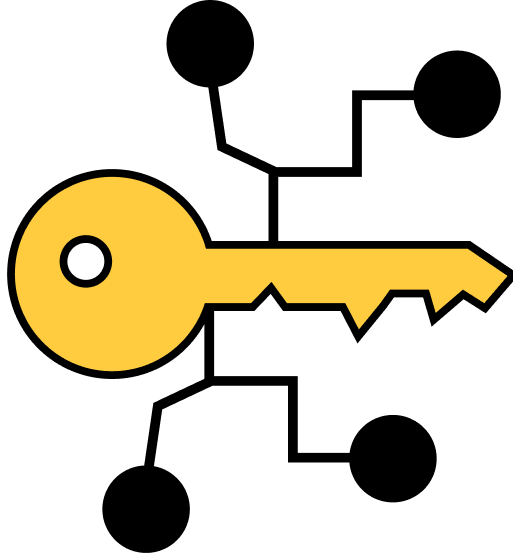MD4
The MD4 Message-Digest Algorithm is a cryptographic hash function developed by in 1990. The digest length is 128 bits. The algorithm has influenced later designs, such as the MD5, SHA-1 and RIPEMD algorithms. The acronym “MD” stands for “Message Digest.”
The security of MD4 has been severely compromised. The first full collision attack against MD4 was published in 1995 and several newer attacks have been published since then. As of 2007, an attack can generate collisions in less than 2 MD4 hash operations.
Contents
Security
Weaknesses in MD4 were demonstrated by Den Boer and Bosselaers in a paper published in 1991. The first full-round MD4 collision attack was found by in 1995, which took only seconds to carry out at that time. In August 2004, et al. found a very efficient collision attack, alongside attacks on later hash function designs in the MD4/MD5/SHA-1/RIPEMD family. This result was improved later by Sasaki et al., and generating a collision is now as cheap as verifying it (a few microseconds). In 2011, RFC 6150 stated that RFC 1320 (MD4) is historic (obsolete).
MD4 hashes
The 128-bit (16-byte) MD4 hashes (also termed message digests) are typically represented as 32-digit numbers. The following demonstrates a 43-byte input and the corresponding MD4 hash:
MD4("The quick brown fox jumps over the lazy og") = 1bee69a46ba811185c194762abaeae90
Even a small change in the message will (with overwhelming probability) result in a completely different hash, e.g. changing d to c:
MD4("The quick brown fox jumps over the lazy og") = b86e130ce7028da59e672d56ad0113df
The hash of the zero-length string is:
MD4("") = 31d6cfe0d16ae931b73c59d7e0c089c0
MD4 test vectors
The following test vectors are defined in RFC 1320 (The MD4 Message-Digest Algorithm)
MD4 ("") = 31d6cfe0d16ae931b73c59d7e0c089c0 MD4 ("a") = bde52cb31de33e46245e05fbdbd6fb24 MD4 ("abc") = a448017aaf21d8525fc10ae87aa6729d MD4 ("message digest") = d9130a8164549fe818874806e1c7014b MD4 ("abcdefghijklmnopqrstuvwxyz") = d79e1c308aa5bbcdeea8ed63df412da9 MD4 ("ABCDEFGHIJKLMNOPQRSTUVWXYZabcdefghijklmnopqrstuvwxyz0123456789") = 043f8582f241db351ce627e153e7f0e4 MD4 ("12345678901234567890123456789012345678901234567890123456789012345678901234567890") = e33b4ddc9c38f2199c3e7b164fcc0536
MD4 collision example
Let:
k1 = 839c7a4d7a92cb678a5d59eea5a7573c8a74deb366c3dc20a083b69f5d2a3bb3719dc69891e9f95e809fd7e8b23ba6318ed45e51fe39708bf9427e9c3e8b9 k2 = 839c7a4d7a92cb678a5d59eea5a7573c8a74deb366c3dc20a083b69f5d2a3bb3719dc69891e9f95e809fd7e8b23ba6318ed45e51fe39708bf9427e9c3e8b9
k1 ≠ k2, but MD4(k1) = MD4(k2) = 4d7e6a1defa93d2dde05b45d864c429b
Note that two hex-digits of k1 and k2 define one byte of the input string, whose length is 64 bytes .














 Twitter
Twitter
 Telegram
Telegram
